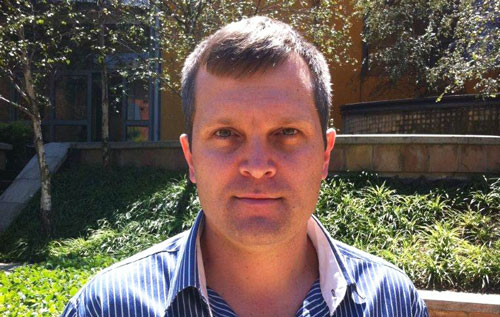
By Sasha Naryshkine
JSE-listed technology group EOH has reported numbers for the first half to end-January. Without doubt, this is one of the most amazing success stories over the past decade anywhere in the market.
The company has grown both organically and through acquisition and done so without fail. To illustrate my point, revenue for the half came in at R1,6bn. In 2007, the company had sales of R704m – for the entire year!
Similarly, profits have kept pace with the breakneck speed of increasing sales, growing at an average pace of 32,5%/year for the past five years. And it comes as no surprise that the group’s market value has kept pace, up from about R650m at the end of 2007 to the current level of almost R3bn.
The share price is up by an astonishing 350% over five years, with the share closing on Tuesday at R30,85. The figures do back up this performance, though. Headline earnings per share increased by 31,8% to 127,2c in the last six-month period.
But what does the company actually do? Well, the answer is: nothing that appears overly smart or hard, but we have it on good authority that this is a very smart management team that is highly regarded.
Have you ever heard someone say, “Ja, my cousin is in IT, (s)he will understand it”? My other favourite is when someone says “they know computers”, as if the machines have some sort of secret understanding with folks in society that are – how should we put it? – of the nerdier persuasion. Whatever IT is, apparently EOH are the folks that get it.
The company has three core business solutions – consulting, technology and outsourcing. So, if you need to upgrade your technology, EOH can offer you a solution beginning to end – everything from fixing anxiety over your Internet security through to hosting, managed services, enterprise management and cloud computing services.
Its clients operate in various industries, from the public sector to financial services. Its technology partners include IBM, SAP, CA, HP and Oracle.
The company does not have a particularly long corporate history. It listed in the IT boom of the late 1990s, and I often say the companies that managed to survive the subsequent washout must have had some substance in the first place.
What is interesting is that the company continues to add smaller businesses that operate in similar markets. The total sales generated by the separate businesses that EOH bought, during the six month period, was R105,6m, delivering profits before tax of R11,2m. So, roughly 6,5% of sales and profits came from acquisitions.
The company has obviously seen this as part of its strategy in the past, but the tricky part is the unknown factor, replicating corporate culture in their various new businesses.
Government business now represents about 25% of total sales and this has been boosted from around 15%. This is both good and bad. It’s good because the client, once in, is normally a keeper. But some of the poor payment “challenges” in the public sector leave me a little lukewarm on this growth.
I must be honest, as a citizen of both Gauteng and South Africa, I would much rather have EOH looking after more government business than for it to be done internally — for no other reason than private money allocates capital and resources infinitely better than public money, no matter where you go in the world.
Is EOH a good investment, though? The team is good. The company is small — it’s on the ranking tables with the likes of Cashbuild and Cipla Medpro, or 137th overall. Yes, it’s small, but it’s making enormous progress.
For the first time, the stock commands a slightly higher premium than in the past, meaning there are more people who are paying attention and there are a different bunch of shareholders. The stock trades at roughly R31. Annualise these earnings at the same growth clip and you are looking at about a 12,5 price to earnings multiple, more than the less than 10 it’s traded at in the past.
Through its strategy of both organic and acquisitive growth, operating profit margins have been maintained. There is plenty that is compelling about this business, but one must appreciate the risks of the size and scale.
- Sasha Naryshkine is a director at asset management company Vestact
- Subscribe to our free daily newsletter
- Follow us on Twitter or on Google+ or on Facebook
- Visit our sister website, SportsCentral (still in beta)




